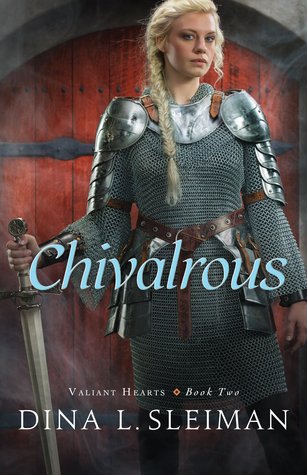Title: Daniel Deronda
Author: George Eliot
Rating: 5/5 stars
Synopsis:
Gwendolen Harleth
gambles her happiness when she marries a sadistic aristocrat for his
money. Beautiful, neurotic, and self-centred, Gwendolen is trapped in an
increasingly destructive relationship, and only her chance encounter
with the idealistic Deronda seems to offer the hope of a brighter
future. Deronda is searching for a vocation, and in embracing the Jewish
cause he finds one that is both visionary and life-changing. Damaged by
their pasts, and alienated from the society around them, they must both discover the values that will give their lives meaning.
My thoughts:
Daniel Deronda was the first George Eliot novel
I’ve ever had the pleasure to read. Pleasure, I say, because a lot of joy was
involved in this reading experience. This classic was also the first of the
books I’ve read this year that made it to my favourite shelf. Let me tell you
why.
The subject Daniel Deronda deals with is one
that required a lot of courage to write about, especially the way George Eliot
did. She introduces us to the life of Jews and the ways of the Jewish community
in 19th century England and all the while she does it by showing them in
a favourable light. Anti-Semitism was definitely a thing in Victorian England,
like it had been in earlier periods and in other places since Biblical times,
but in Daniel Deronda George Eliot made an attempt to fight against this
phenomena and I was pleased to realize it.
Daniel is a young man who doesn’t know what to
do with his life. He feels an extreme amount of empathy for persons in need;
empathy is the most important thing that defines him and drives his actions.
The reason for his willingness to help is rooted in his childhood: he doesn’t
know who his mother is and is not sure if his uncle is actually his uncle or his father.
All the pain he feels in connection with his uncertain parentage leads him to
help unburden other human beings.
To tell the truth Daniel sometimes seemed too
perfect to me. Such a level of selflessness that he presented was too
unrealistic to me sometimes. Don’t get me wrong, I loved him, but I don’t think
I can come across a person like him in the real world. At times I felt sorry
for him, because he felt guilty and miserable when he couldn’t help – when he
was unable to help. His relationship with Gwendolen was eating him inside and
he was blaming himself when he should have realized the girl wasn’t his responsibility.
I couldn’t not partly agree if someone said Daniel
isn’t the real protagonist of this novel though. Gwendolen Harleth’s story of
redemption and tragic enlightenment in many ways outweighs the importance of Daniel’s
path-searching struggles. We find ourselves getting involved in Gwendolen’s tale
in the very beginning of the book – Daniel appears for a brief time, then we
don’t even meet him until we are well into the book. Gwendolen goes through so
many things: having to grow up, getting poor, oppression, tragedy – and the end
of the story finds her clinging to someone and being afraid to fall. The depth
of the character is amazing, the transformation from a spoiled, confident child
to a completely changed adult is striking.
I liked that the book wasn’t a love story – in
my interpretation it wasn’t, anyway. There is love in it, but if you’re looking
for something like Pride and Prejudice, don’t turn to Daniel Deronda. There’s a
lot of feeling involved and the novel is utterly romantic in this sense, but
love is not the most important of feelings here. For example, Mirah,
the little Jewess, who is Daniel’s (other?) love interest was not such a profoundly
discovered character as Gwendolen was.
Another important person in the novel is
Mordecai, a young Jew, who changes Daniel’s life. With Mordecai mysticism
comes into the picture and one cannot help but wonder at this character. He
is peculiar, a prophetic air surrounds him; his obsession with Daniel made me
feel second-hand embarrassment not just once, yet I envied him for his faith
and he seemed to be a creature filled with love for others. It cannot be denied
that he is a charismatic person and he has to be to make his speeches about Jewish
nationality effective. Sometimes my jaw dropped at how much his speeches could
touch me.
There are some well-known 19th century/romantic themes too that you can meet in this book: marriage (it covers married life as well – not a pleasant marriage, mind),
consumption (seriously, has anyone ever read a 19th century novel in which no
one died of this illness?), parlour music and musical talent etc…
Daniel Deronda is a thick book (more than 700 pages), but
it is most definitely worth to read it. The story is highly enjoyable, the characters are
interesting and deep (even the side characters) and you will be left with a lot
of feels and thoughts to meditate on, I guarantee that. Happy reading!

















